In 2020, The National Institutes of Health (NIH) Office of Data Science Strategy hosted the inaugural cohort of Data and Technology Advancement (DATA) National Service Scholars. These talented professionals have worked on high-impact data and technology projects across the NIH, advancing the landscape of biomedical data science.
Click here to learn more about the DATA Scholars program.
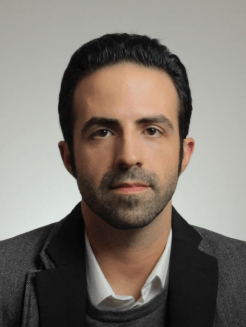
Mohammad M. Ghassemi, Ph.D., joined the National Institute of Neurological Disorders and Stroke, where he is working with the Brain Research through Advancing Innovative Neurotechnologies® (BRAIN) Initiative to develop the BRAIN initiative Workspace to ORganize the Knowledge Space (BRAINWORKS) platform—an artificial intelligence tool for the automated exploration and integration of diverse knowledge in the scientific literature. Dr. Ghassemi is an assistant professor of computer science at Michigan State University; his research laboratory develops technologies that combine human and machine intelligence to solve problems that neither humans nor machines can solve as effectively alone. His academic work has included the generation and sharing of some of the world’s largest de-identified patient data repositories. He holds multiple U.S. patents and has published extensively on the applications of artificial intelligence to problems in health. Dr. Ghassemi also has more than a decade of experience working in technical and strategic consulting with Fortune 500 companies to lead transformational data and technology efforts. His start-up company, Ghamut Corporation, produces technology designed to improve human social interactions and well-being.
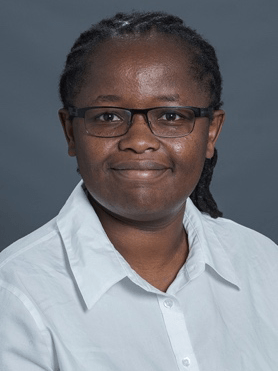
Judy Wawira Gichoya, M.D., M.S., joined a team at the Fogarty International Center, working closely with the National Institute of Biomedical Imaging and Bioengineering (NIBIB), to help establish new data resources for the Harnessing Data Science for Health Discovery and Innovation in Africa (DS-I Africa) program. Dr. Gichoya is an interventional radiologist and researcher in artificial intelligence applications in health care with extensive experience in international health information technology development and implementation and a passion for using data science in the interest of human health. Dr. Gichoya trained as a physician in Kenya and has built and maintained open-source tools for electronic medical records, collaborating with multiple international government entities and academic researchers for global health. She continues to maintain a faculty appointment at Emory University. Dr. Gichoya has extensive applied experience in building data resources for low- and middle-income countries and integrating artificial intelligence into clinical practice. She has made notable contributions to validating machine learning algorithms for health, as well as exploring fairness and bias in medical algorithms.
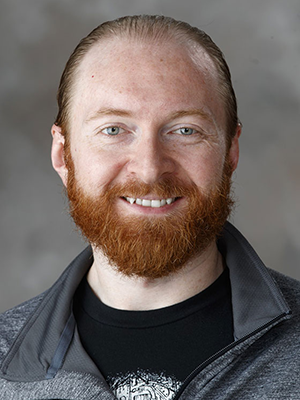
Karl Kuntzelman, Ph.D., joined the National Institute of Mental Health (NIMH) team and is building tools and resources that will help users of the NIMH Data Archive conduct analyses in the cloud. Dr. Kuntzelman is a neuroscientist with formal training in linguistics and psychology and experience in developing and testing software and enhancing user experience, and he is motivated to use his skills to help the broader scientific community. As a staff member at the Brain, Biology, and Behavior center at the University of Nebraska–Lincoln, he has collaborated with faculty on developing software tools for a wide range of research questions involving image processing and deep learning techniques. He also has developed extensive documentation and training to make these tools broadly accessible to researchers. He brings experience with human-centered design and user testing for neuroscience tools and experience building and training users on these tools, as well as broad connections with the neuroscience community.
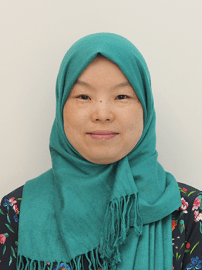
Asiyah Yu Lin, M.D., Ph.D., joined the National Human Genome Research Institute to help improve the connectivity and interoperability among major National Institutes of Health (NIH) data resources, both within and beyond the NIH. Dr. Lin is a biomedical ontologist trained in immunology, pediatrics, and informatics. Her career spans a range of medical research and technical roles at academic institutions and in government, most recently leading data integration projects at the U.S. Food and Drug Administration Center for Devices and Radiological Health. She brings deep knowledge of data models and data harmonization and experience leading technical teams in academia and government.
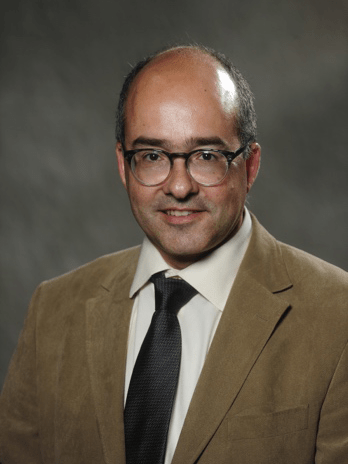
Rui Carlos Pereira de Sá, Ph.D., joined the NIBIB to help lead their efforts to drive clinical adoption of artificial intelligence applications for medical imaging for COVID-19 response under the Medical Imaging and Data Resource Center program. Dr. Sá is an assistant professor at the University of California, San Diego. His research combines methods from engineering, physics, physiology, and clinical research to study human lung function, and he is driven to contribute this broad skillset to deepen understanding of human health. Dr. Sá has extensive experience in image processing and has developed supervised machine learning algorithms and implemented cloud-based workflow tools.
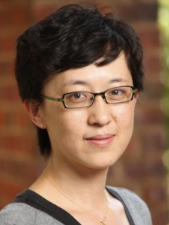
Yanjun Qi, Ph.D., joined the National Institute on Aging as a technical advisor to guide and inform the community on the use of artificial intelligence techniques in Alzheimer’s Disease research. Dr. Qi is an associate professor at the University of Virginia Department of Computer Science. Her research interests are in machine learning and in applications with biomedical impacts. She obtained her Ph.D. from the School of Computer Science at Carnegie Mellon University in 2008 and her bachelor’s degree with high honors from the Computer Science Department at Tsinghua University, Beijing. She was a researcher in the Machine Learning Department at NEC Laboratories America, Inc., in Princeton, NJ, from 2008 to 2013. She has served on program committees and as a reviewer for multiple international conferences and journals, and she has co-chaired the Neural Information Processing Systems (NeurIPS) Machine Learning for Computational Biology workshops. Dr. Qi has received the Faculty Early Career Development (CAREER) award from the National Science Foundation and a Best Paper Award at NeurIPS Workshop for Transparent and Interpretable Machine Learning.
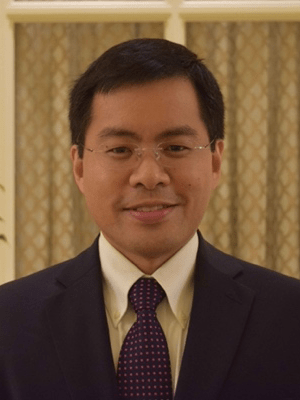
Jay G. Ronquillo, M.D., M.P.H, M.M.Sc., M.Eng., joined the National Cancer Institute team to further build and expand the Cancer Research Data Commons, using informatics and data science to accelerate integrated cancer research analyses. Dr. Ronquillo received bachelor’s and master’s degrees in engineering from Cornell University, an M.D. from the Virginia Commonwealth University School of Medicine, and graduate degrees in public health and biomedical informatics from Harvard University. His career has spanned academia, government, nonprofits, and industry, leading to deep expertise applying complex health care data to precision medicine, population health, and health care policy research. In December 2021, Dr. Ronquillo published “Pharmacogenomic testing and prescribing patterns for patients with cancer in a large national precision medicine cohort” in the Journal of Medical Genetics. This study utilized data from NIH’s All of Us data repository, and was the first to characterize real-world pharmacogenomic prescribing and testing for patients with cancer in a large national cohort. Dr. Ronquillo also became one of the first to earn AMIA’s Certified Health Informatics Professional Credential.


